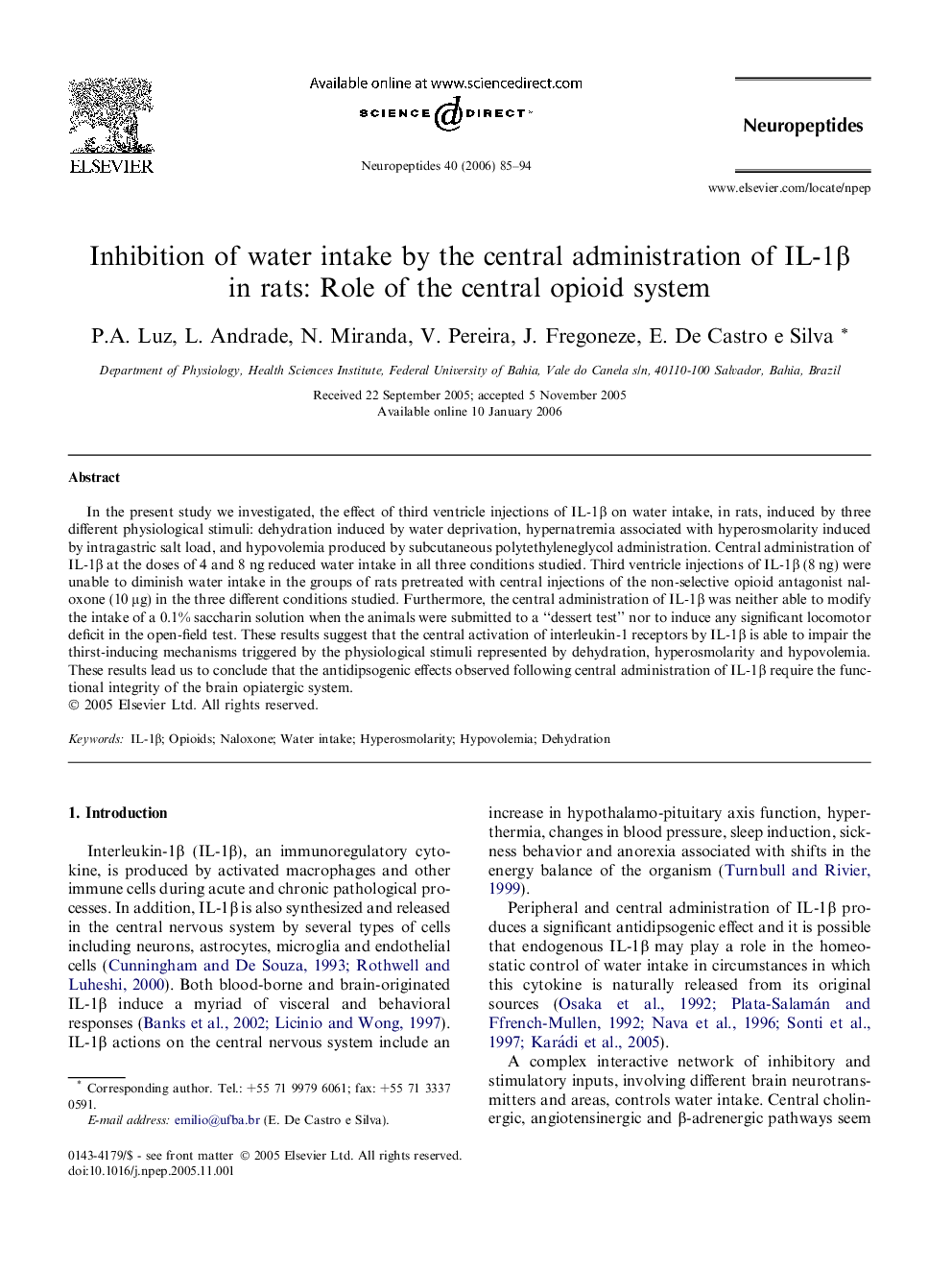| Article ID | Journal | Published Year | Pages | File Type |
|---|---|---|---|---|
| 2808516 | Neuropeptides | 2006 | 10 Pages |
In the present study we investigated, the effect of third ventricle injections of IL-1β on water intake, in rats, induced by three different physiological stimuli: dehydration induced by water deprivation, hypernatremia associated with hyperosmolarity induced by intragastric salt load, and hypovolemia produced by subcutaneous polytethyleneglycol administration. Central administration of IL-1β at the doses of 4 and 8 ng reduced water intake in all three conditions studied. Third ventricle injections of IL-1β (8 ng) were unable to diminish water intake in the groups of rats pretreated with central injections of the non-selective opioid antagonist naloxone (10 μg) in the three different conditions studied. Furthermore, the central administration of IL-1β was neither able to modify the intake of a 0.1% saccharin solution when the animals were submitted to a “dessert test” nor to induce any significant locomotor deficit in the open-field test. These results suggest that the central activation of interleukin-1 receptors by IL-1β is able to impair the thirst-inducing mechanisms triggered by the physiological stimuli represented by dehydration, hyperosmolarity and hypovolemia. These results lead us to conclude that the antidipsogenic effects observed following central administration of IL-1β require the functional integrity of the brain opiatergic system.
